Key Takeaways
1. Choice theory explores rational decision-making and its foundations
Choice theory develops the intellectual reasoning which is necessary for good action: the character which is also necessary for this is up to you.
Foundation of choice theory. Choice theory examines the reasoning behind coherent patterns of choice, exploring what it means to act rationally. It provides a framework for understanding how individuals make decisions and what constitutes rational behavior. The theory is rooted in the idea that choices arise from both the heart (passion) and the head (reason).
Key concepts:
- Menus: Lists of items from which choices must be made
- Preferences: Rankings of items based on desirability
- Rationality: Consistency in decision-making patterns
Choice theory has implications across various fields, including economics, psychology, and ethics. It serves as both an exploration of rational behavior and a potential guide for making sensible decisions, though it does not prescribe specific choices.
2. Reasonable choices satisfy contraction and expansion conditions
Choice is reasonable if and only if it can be explained by a preference relation.
Conditions for reasonableness. Reasonable choices must satisfy two key conditions:
- Contraction condition: If an item is chosen from a larger menu, it should also be chosen when available in a more restricted menu.
- Expansion condition: If an item is chosen in pairwise comparisons with every other item, it should be chosen from the full menu.
These conditions ensure consistency in decision-making across different menu sizes and compositions. Choices that satisfy both conditions can be explained by a preference relation, which specifies whether one item is at least as good as another for any pair of items on a menu.
3. Rational choices maximize utility and can be explained by preference orderings
Choice is rational if and only if it is utility maximizing.
Rationality and utility. Rational choices go beyond reasonableness by satisfying an additional condition:
- Revelation condition: If an item is ever chosen when another is available, it should always be chosen when that other item is available.
Rational choices can be explained by a preference ordering, which is a transitive preference relation. This means that if A is preferred to B, and B is preferred to C, then A must be preferred to C. Such choices maximize utility, a numerical representation of preferences.
Key points:
- Utility is derived from choice, not the other way around
- Cardinal utility allows for meaningful comparisons of utility differences
- Rational choices are consistent across all possible menus
4. Uncertainty introduces probability and state gambles into decision-making
Preferences over probability gambles are rational, that is, satisfy the substitution and continuity conditions, if and only if they have the expected utility property.
Choice under uncertainty. When outcomes are uncertain, decision-making involves choosing between gambles. Two types of gambles are considered:
- Probability gambles: Outcomes with known probabilities
- State gambles: Outcomes dependent on unknown states of the world
Rational preferences over gambles satisfy two conditions:
- Substitution condition: Preferences between gambles should not be affected by irrelevant alternatives
- Continuity condition: There should be no sudden jumps in preferences
These conditions lead to the expected utility property, where preferences can be represented by assigning utilities to outcomes and choosing based on expected utility.
5. Risk aversion shapes attitudes towards gambling and insurance
You are more risk averse than me if and only if your risk premium for all gambles is greater than mine.
Risk attitudes and behavior. Risk aversion is a key concept in understanding attitudes towards monetary gambles. It is measured by the risk premium, which is the difference between a gamble's expected value and its certainty equivalent.
Implications of risk aversion:
- Risk-averse individuals prefer certain outcomes to risky ones with the same expected value
- They are more likely to buy insurance and less likely to gamble
- The degree of risk aversion can vary with wealth levels
The concept of risk aversion helps explain phenomena such as the coexistence of gambling and insurance purchases, which may seem paradoxical at first glance.
6. Strategic choices involve interdependent decisions and game theory
Your action is rational if it is a plausible response to my plausible responses to your plausible responses to my plausible responses . . .
Game theory and strategic thinking. In strategic situations, the outcomes of choices depend on the actions of multiple decision-makers. Game theory provides a framework for analyzing such interdependent decisions.
Key concepts in strategic choice:
- Best responses: Actions that maximize utility given others' actions
- Rational actions: Those that emerge from chains of plausible responses
- Sustainable actions (Nash equilibrium): Mutually best responses
Strategic thinking often leads to outcomes that may not be collectively optimal, as seen in the famous Prisoners' Dilemma. The theory also explores how cooperation can emerge in repeated interactions.
7. Group decision-making faces inherent challenges and paradoxes
Any constitution which produces rational choices and which satisfies the independence and unanimity conditions must be dictatorial.
Challenges in collective choice. Group decision-making introduces unique challenges and paradoxes. Arrow's Impossibility Theorem demonstrates that no constitution for group choice can simultaneously satisfy all desirable properties:
- Rationality of choices
- Independence of irrelevant alternatives
- Unanimity (Pareto efficiency)
- Non-dictatorship
This result has profound implications for democratic systems and the concept of "social welfare." Other challenges include:
- The paradox of voting (Condorcet paradox)
- The tension between liberalism and Pareto efficiency
- The inherent manipulability of voting schemes
These findings suggest fundamental limitations in aggregating individual preferences into coherent group decisions.
8. Distributive justice and ethics in choice theory remain contentious
If it were true that interpersonal comparisons of utility could not be made, I believe that there would be no point in writing a book about rational ethics.
Ethics and choice theory. The application of choice theory to questions of distributive justice and ethics remains controversial. Key debates include:
- Interpersonal comparisons of utility: Are they possible and meaningful?
- Utilitarianism vs. rights-based approaches to justice
- The role of the "veil of ignorance" in ethical reasoning
Attempts to derive ethical principles from choice theory, such as Harsanyi's ideal observer construction, face significant challenges. The tension between individual rationality and collective welfare persists, leaving open questions about the foundations of ethics and the justification for wealth redistribution.
Key points of contention:
- The measurability and comparability of individual utilities
- The ethical implications of maximizing total utility
- The role of voluntary vs. compulsory redistribution
These debates highlight the limits of choice theory in resolving fundamental ethical questions and underscore the ongoing need for philosophical inquiry alongside formal analysis.
Last updated:
FAQ
1. What is "Choice Theory: A Very Short Introduction" by Michael Allingham about?
- Explores Rational Choice: The book examines the reasoning behind coherent patterns of choice, focusing on what it means to act rationally.
- Covers Multiple Contexts: It discusses choice under certainty, uncertainty, strategic (game-theoretic) situations, and group decision-making.
- Foundational Concepts: The text introduces key concepts such as preference relations, utility, risk, and group constitutions.
- Accessible Overview: Written as a concise guide, it aims to provide a clear, non-technical introduction to the main ideas of choice theory.
2. Why should I read "Choice Theory: A Very Short Introduction" by Michael Allingham?
- Understand Decision-Making: The book provides insights into how individuals and groups make choices, which is relevant in economics, politics, and everyday life.
- Clarifies Rationality: It helps readers distinguish between reasonable and rational choices, and understand the conditions that define them.
- Addresses Real-World Paradoxes: The text discusses famous paradoxes and dilemmas, such as the Allais and Ellsberg paradoxes, making abstract concepts tangible.
- Foundation for Further Study: It serves as a stepping stone for more advanced study in economics, philosophy, and social sciences.
3. What are the key takeaways from "Choice Theory: A Very Short Introduction"?
- Rationality Defined by Consistency: Rational choice is characterized by consistent, transitive preferences that can be represented by utility maximization.
- Context Matters: The nature of choice changes depending on certainty, uncertainty, strategic interaction, and group settings.
- Limits of Group Choice: Arrow’s impossibility theorem shows that no group decision rule can satisfy all reasonable conditions for rationality, independence, unanimity, and non-dictatorship.
- Risk and Utility: Attitudes to risk are central in choices involving uncertainty, and utility functions capture these attitudes.
4. How does Michael Allingham define rational and reasonable choice in "Choice Theory: A Very Short Introduction"?
- Reasonable Choice: A choice is reasonable if it satisfies the contraction and expansion conditions, meaning choices are consistent when menus change.
- Rational Choice: Rationality requires the stronger revelation condition, ensuring choices reveal a consistent, transitive preference ordering.
- Utility Maximization: Rational choices can be represented as maximizing a utility function derived from preferences.
- Preference Relations: The book distinguishes between preference relations (which may be non-transitive) and preference orderings (which are transitive and rational).
5. What is the role of utility in "Choice Theory: A Very Short Introduction" by Michael Allingham?
- Ordinal Utility: Utility is initially used to order preferences, with higher utility assigned to more preferred items; only the order matters.
- Cardinal Utility: In uncertain situations, utility must be cardinal (measurable up to linear transformations) to allow for expected utility calculations.
- Utility and Choice: Utility is derived from observed choices, not the other way around; it is a representation of preference, not a measure of happiness.
- Limits of Utility: The book cautions against interpreting utility differences as meaningful in the ordinal case and warns about interpersonal utility comparisons.
6. How does "Choice Theory: A Very Short Introduction" explain choice under uncertainty and risk?
- Probability Gambles: Choices under uncertainty are modeled as gambles with known or subjective probabilities attached to outcomes.
- Expected Utility Theory: Rational preferences over gambles satisfy the substitution and continuity conditions, leading to the expected utility property.
- Risk Aversion: The book discusses risk aversion, risk premium, and how the concavity of the utility function reflects attitudes toward risk.
- Paradoxes and Limitations: It addresses paradoxes (e.g., Allais, Ellsberg) that challenge expected utility theory and discusses possible responses.
7. What is the significance of the contraction, expansion, and revelation conditions in "Choice Theory: A Very Short Introduction"?
- Contraction Condition: If an item is chosen from a menu, it should still be chosen if the menu is restricted to include it.
- Expansion Condition: If an item is chosen in every pairwise comparison, it should be chosen from the full menu.
- Revelation Condition: If an item is ever chosen over another, the reverse should not happen in any menu; this ensures transitivity and rationality.
- Foundation for Rationality: These conditions underpin the definitions of reasonable and rational choice, linking observed choices to underlying preferences.
8. How does "Choice Theory: A Very Short Introduction" address strategic choice and game theory?
- Strategic Interdependence: The book explores situations where outcomes depend on the choices of multiple decision-makers (game theory).
- Rational Actions: Rationality in this context is defined by iterative undomination—actions that survive the deletion of dominated strategies.
- Nash Equilibrium: Sustainable (jointly rational) actions are those where each player’s choice is a best response to the other’s.
- Limits of Rationality: Not all rational actions are sustainable, and issues like multiple equilibria and the difference between individual and collective rationality are discussed.
9. What does "Choice Theory: A Very Short Introduction" reveal about group choice and Arrow’s impossibility theorem?
- Group Constitutions: The book examines how individual preferences are aggregated into group choices via constitutions (rules).
- Arrow’s Theorem: It demonstrates that no constitution can simultaneously satisfy rationality, independence, unanimity, and non-dictatorship for three or more people.
- Dictatorship Result: The only way to guarantee rational group choice under these conditions is to have a dictatorial rule.
- Implications: This result challenges the possibility of fair, rational collective decision-making and has profound implications for democracy and social choice.
10. How does "Choice Theory: A Very Short Introduction" discuss distributive justice and the justification for redistribution?
- Veil of Ignorance: The book discusses Rawls’s difference principle and the idea of choosing distributions without knowing one’s own position.
- Utilitarianism: It explores utilitarian approaches, where redistribution is justified if it increases total utility, assuming utilities are comparable.
- Limits of Justification: The text highlights the difficulties of making interpersonal utility comparisons and the ethical challenges of justifying redistribution.
- Ideal Observer Construction: Harsanyi’s approach is presented, but the book notes its reliance on strong assumptions about empathy and consensus.
11. What are some of the key paradoxes and empirical challenges discussed in "Choice Theory: A Very Short Introduction"?
- Allais Paradox: Shows that people’s choices often violate expected utility theory, especially when dealing with small probabilities.
- Ellsberg Paradox: Demonstrates ambiguity aversion—people prefer known risks over unknown risks, challenging subjective expected utility.
- Framing Paradox: Reveals that the way choices are presented (framed) can affect decisions, even when the underlying options are equivalent.
- Newcomb’s Paradox: Raises questions about prediction, free will, and rationality in decision-making.
12. What are the best quotes from "Choice Theory: A Very Short Introduction" by Michael Allingham and what do they mean?
- "Choice is deliberate desire." — This phrase, echoing Aristotle, encapsulates the book’s view that rational choice combines desire (what we want) with reasoning (how we choose).
- "Utility is derived from choice, not choice from utility." — Emphasizes that utility is a representation of observed preferences, not an intrinsic measure of happiness or value.
- "It is not contrary to reason for me to chuse my total ruin to prevent the least uneasiness of an Indian." — Quoting Hume, this highlights that reason alone does not dictate what we should value; preferences can be deeply personal.
- "All collective choices, then, must either be dictatorial or violate some very basic requirements." — Summarizes the sobering conclusion of Arrow’s impossibility theorem regarding group decision-making.
Review Summary
Choice Theory receives mixed reviews, with ratings ranging from 1 to 4 stars. Some readers find it informative and thought-provoking, covering topics like rational choice, probability, and decision-making strategies. However, many criticize its dry, academic tone and lack of practical examples. Several reviewers note that the book is more complex than expected for a "Very Short Introduction" and may be challenging for those without a background in economics or mathematics. Some appreciate its concise overview of choice theory, while others find it disappointing and difficult to understand.
Very Short Introductions Series Series

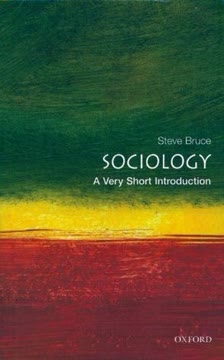

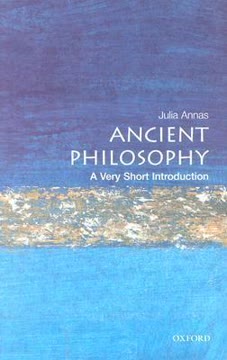
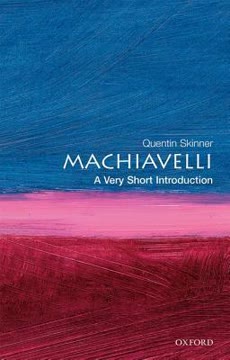
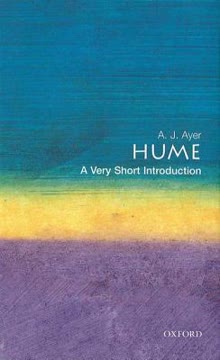

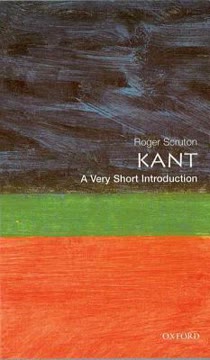
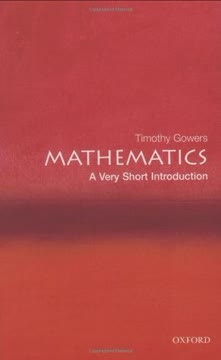
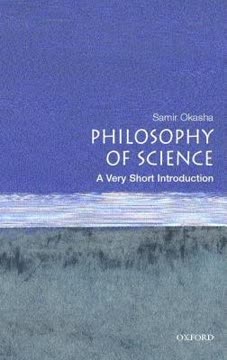
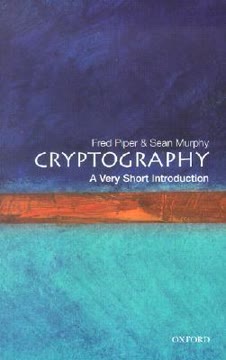
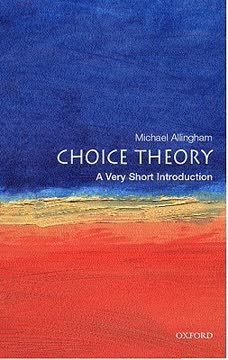
Similar Books
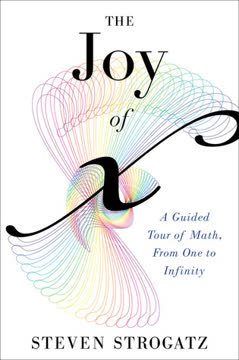



Download PDF
Download EPUB
.epub digital book format is ideal for reading ebooks on phones, tablets, and e-readers.



